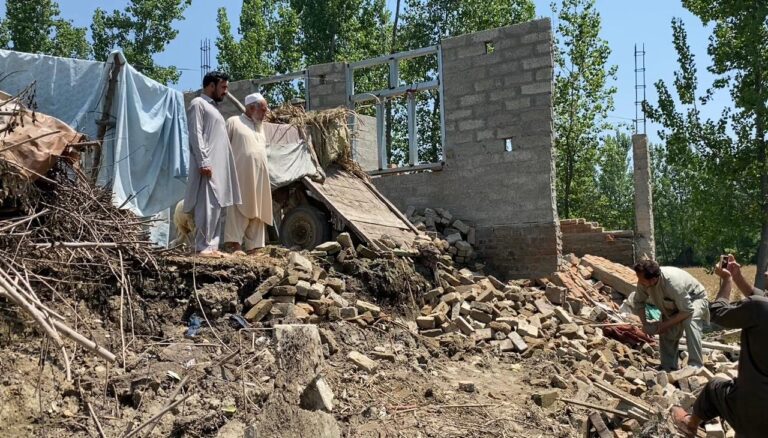By: Sajid Kakar
Awal Khan, a resident of Charsadda district in Khyber Pakhtunkhwa, spent years building a house for his children, only to have it destroyed by the recent floods that ravaged the province last month. Now, he is left to live under the open sky, a victim of the severe impacts of climate change in Pakistan.
This devastating loss is not new to Awal Khan. He has repeatedly lost his home, livestock, and crops to floods over the years. The recent floods not only obliterated his home but also wreaked havoc on an ancient graveyard in the area, washing away many graves.
Awal Khan stated that seeing his home being destroyed by floods repeatedly is a difficult experience and a form of mental torture for him and his family. He added that due to the recent inflation in the country, he doesn’t have the financial resources to rebuild his home again.
The recent floods in Charsadda have not only affected the crops, homes, and livestock but also the ancient graveyard in the area. The locals say that the rising water levels in the rivers have increased soil erosion, causing the floodwater to enter the graveyard and wash away many graves.
The locals have been forced to exhume the bodies from the graveyard and rebury them in another location. They say they have been seeing their loved ones’ graves washed away by floods for decades, and now they are left with no choice but to move the remaining graves.
Pakistan is one of the countries most affected by climate change. The districts of Charsadda and Nowshera in Khyber Pakhtunkhwa are among the areas severely impacted. Unexpected rainfall and increased heat in the mountainous regions have caused glaciers to melt, resulting in floods in the rivers Jindi, Swat, and Kabul.
The residents of Charsadda and Nowshera are severely affected by the floods and demand that the government take measures to protect the riverside areas from flooding. While natural disasters like floods cannot be entirely prevented, proactive measures can be taken to reduce the damage they cause.


